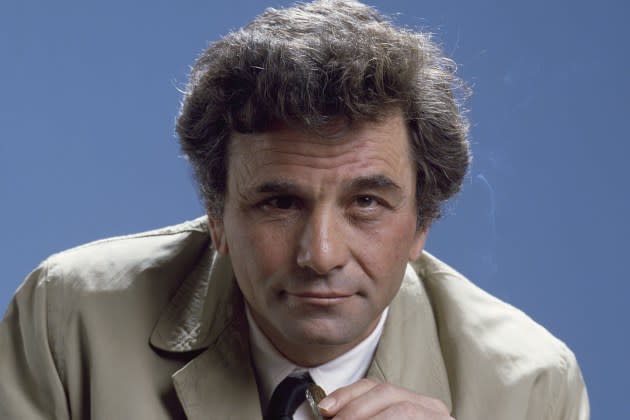NBCUniversal Settles ‘Columbo’ Profits Fight
- Oops!Something went wrong.Please try again later.
- Oops!Something went wrong.Please try again later.
- Oops!Something went wrong.Please try again later.

NBCUniversal has reached a deal to resolve a long-running case over back profits it allegedly owes to the creators of Columbo.
The heirs of William Link and Richard Levinson have settled their lawsuit against the studio, according to a court notice filed Monday, averting a trial that was scheduled to start next month. Terms of the deal weren’t disclosed.
More from The Hollywood Reporter
NBCU Talent Stars in Ad Campaign for U.S. Game Launch of 'Match Masters' From Israel's Candivore
NBCUniversal Promotes Linda Yaccarino's Replacement: Mark Marshall Named Ad Chief
University City Studios was sued by Foxcroft Productions and Fairmont Productions in 2017 in a lawsuit accusing it of shortchanging the Columbo creators on profits. Although Columbo has generated $600 million in gross revenue, the plaintiffs say the studio has only paid the loan-out companies $5 million because it deducted distribution fees.
The case has bounced around among a jury, multiple judges and a state appellate court. Jurors in 2019 found that Universal wasn’t entitled to deduct distribution fees in accounting to profit participants. A panel of accounting referees, tasked with analyzing income and expense statements, then concluded that Link’s and Levinson’s loan-out companies were shorted roughly $36 million. Prejudgment interest of nearly $41 million was tacked on to the award.
But Los Angeles Superior Court Judge Richard Burdge Jr. set aside the verdict, agreeing with Universal that it should be granted a new trial. He determined that the jury wasn’t properly instructed on the meaning of “photoplays” in the deal, which allows studios to deduct distribution fees for video-recorded programs. While the court ruled that episodes of Columbo qualified as photoplays, it didn’t do so until after the jury entered its verdict because the trial was split into multiple phases.
The sole question at issue in the retrial was the amount in distribution fees, if any, Universal was entitled to deduct to calculate net profits.
Link’s and Levinson’s loan-out companies argued the answer is zero. While their deal “sets a range with a theoretical maximum amount that can be charged for distribution fees subject to the parties’ agreement, in reality that ceiling is zero,” they wrote in a motion for summary judgment. “The undisputed evidence is that Universal’s ‘standard practices, applicable to [any video recorded programs]’ was to not impose any distribution fees.”
Universal maintained that “deducting distribution fees is standard in the entertainment industry” as a mechanism for distributors to cover costs — including salaries, rent and expenses — that aren’t charged to profit participants.
Best of The Hollywood Reporter
Meet the World Builders: Hollywood's Top Physical Production Executives of 2023
Men in Blazers, Hollywood’s Favorite Soccer Podcast, Aims for a Global Empire

